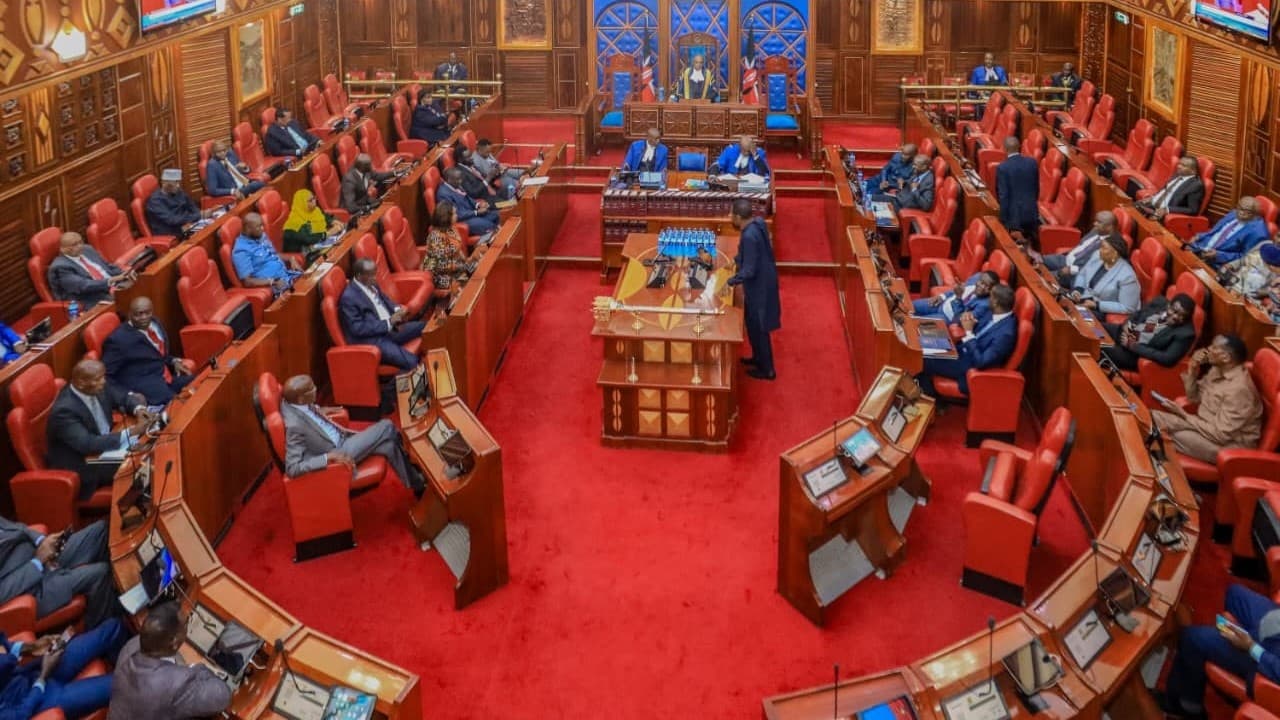We're loading the full news article for you. This includes the article content, images, author information, and related articles.
As Parliament resumes from its month-long recess, the Senate is making a strong push for the Constitution of Kenya (Amendment) Bill, 2025 (Senate Bill No. 13), which seeks to enhance the chamber’s oversight powers via significant constitutional changes.

Nairobi, Kenya — September 23, 2025, 11:00 EAT.
As Parliament resumes from its month-long recess, the Senate is making a strong push for the Constitution of Kenya (Amendment) Bill, 2025 (Senate Bill No. 13), which seeks to enhance the chamber’s oversight powers via significant constitutional changes.
The Senate has proposed that its mandate be expanded to cover all legislation—not just county affairs—granting it an equal say in budget making and financial oversight.
A key element of the Bill is the creation of a County Assembly Fund to fund county assemblies directly, thereby reducing dependence on county executives (governors) and giving assemblies more autonomy.
Joint vetting of key state officers (DPP, Auditor-General, Controller of Budget, among others) by both Houses of Parliament is also proposed, increasing the Senate’s role in oversight of executive appointments.
The 2010 Constitution gave the Senate a clear mandate over devolved matters (county governments) but largely excluded it from many national legislative and budgetary processes.
Over the years, there have been turf wars and friction between the National Assembly and Senate over overlapping roles, especially in budget allocation, oversight, and revenue legislation.
The current Amendment Bill is being presented as one of the most significant reform proposals since the Constitution’s promulgation.
Constitutional framework: Amending the constitution requires rigorous constitutional process: readings in both Houses, public participation, possibly referendum (depending on the nature of changes), and presidential assent. The Bill is Senate Bill No. 13 of 2025.
Mandate issues: If passed, the Senate would have a constitutional mandate to originate or fully engage with all legislation, participate in drafting budgets, and perform oversight over executive functions and state officers jointly with the Assembly.
Senators: Advocates of the Bill argue these reforms will reduce duplication, clarify roles, and enhance accountability particularly at the county level.
Detractors / Analysts: Some warn the expanded Senate powers might create delays in lawmaking, duplication of effort, or conflict with the National Assembly unless roles are clearly defined.
County Assembly officials: Likely to welcome the Fund, which promises more predictable, independent financial resources.
Bill name & number: Constitution of Kenya (Amendment) Bill, 2025 (Senate Bill No. 13 of 2025).
Major proposals: Expand Senate oversight across all legislation; County Assembly Fund; joint vetting of key state officials.
Public participation plan: Senators will conduct forums nationwide in all 47 counties to gather views before further stages.
Legislative complexity: Broader Senate involvement could slow down bill passage if coordination with the National Assembly is not smooth.
Budgetary implications: Creation of County Assembly Fund and expanded oversight may require budget restructuring, possibly leading to resistance from executive or county governments.
Political dynamics: A power rebalancing may intensify inter-house rivalries; success depends on political will and consensus.
Whether the National Assembly will accept the Senate’s proposed amendments without substantial negotiation or pushback.
How the expanded oversight will be operationalised—what mechanisms, staffing, and resources will support the new roles.
Whether a referendum will be required for some of the constitutional changes, depending on their scope.
2010: Constitution promulgated, defining Senate’s devolved role.
Over years post-2010: Repeated tensions between Senate and National Assembly over budget, oversight, and county vs national roles.
September 23, 2025: Parliament resumes; Senate Bill No. 13 proposed and pushed with public participation planned.
The debates in Senate and National Assembly on the Amendment Bill.
Responses from governors, county assemblies, and other stakeholders.
Whether public views collected in counties shift the content of the Bill.
Possible legal challenges to parts of the Bill, especially those touching on budget allocation or legislative powers.
Editor’s Note:
This article is based on statements by Senators, published versions of Bill No. 13 of 2025, and media coverage from Capital FM, AllAfrica, Eastleigh Voice, and parliamentary documents.
Keep the conversation in one place—threads here stay linked to the story and in the forums.
Sign in to start a discussion
Start a conversation about this story and keep it linked here.
Other hot threads
E-sports and Gaming Community in Kenya
Active 9 months ago
The Role of Technology in Modern Agriculture (AgriTech)
Active 9 months ago
Popular Recreational Activities Across Counties
Active 9 months ago
Investing in Youth Sports Development Programs
Active 9 months ago